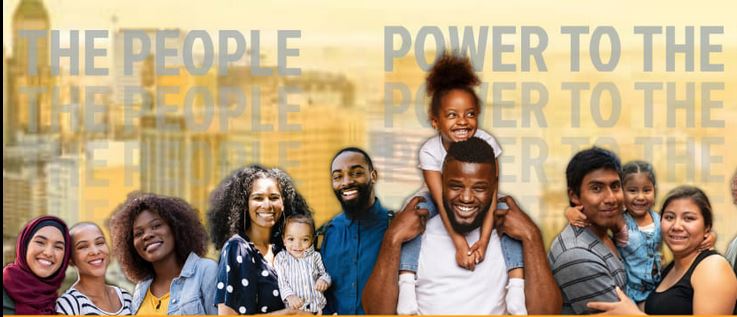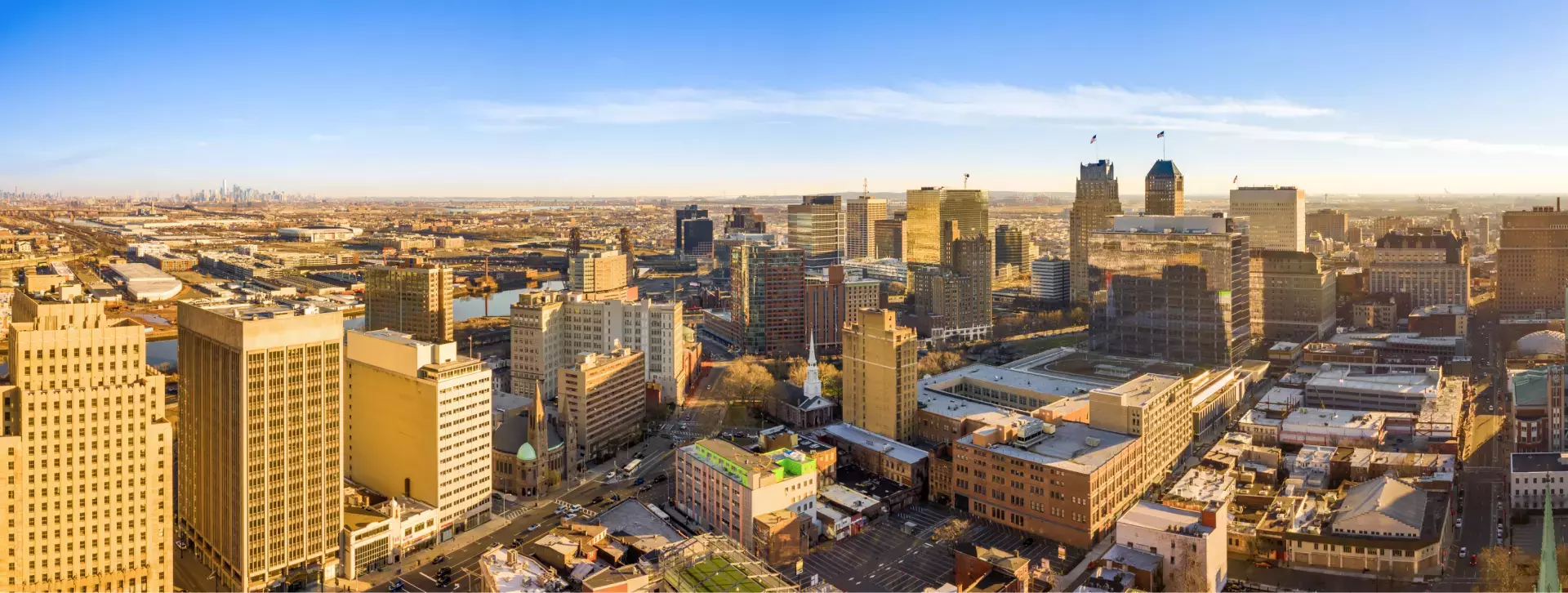
On May 10, 2021, when Mayor Baraka formally announced the launch of the Newark Movement for Economic Equity (NMEE), our city’s guaranteed income pilot program, he stated, “We must emerge from the COVID-19 pandemic with new purpose, new vision, and new ideas to transform our community and truly improve the quality of life of our residents.”
Newark was battling the growing impact of the COVID-19 pandemic on residents, families, institutions, and the city’s ecosystem, all of which felt the weight of death, isolation, sickness, social distancing, remote learning, and financial loss. It was a challenging time for the city, but the perfect time to start a program that would help city residents to recover. One year later, we are seeing how accurate Mayor Baraka’s words truly were.
Guaranteed income is unique in two ways. First, people receive direct cash payments with no stipulations for how they spend those funds. This provides residents who receive the benefit to determine what they need in their lives. Second, guaranteed income is guaranteed; there are no qualifications to keep the funds or any entity watching to ensure that those who receive the funds “do the right thing” or “earn the right” to maintain the support. It provides people with the freedom and flexibility to afford the necessities of life and/or support their specific goals, dreams, and aspirations. Guaranteed income policy acknowledges that individuals should have the freedom to choose what is important in their own lives, prioritizing the central tenet of self-determination.
The Newark Movement for Economic Equity serves 430 Newark residents. Our first group of 30 is a “storytelling cohort” poised to explain the personal side of this policy to the public. The core group of 400 participants is enrolled in a formal research pilot in partnership with the Center for Guaranteed Income Research at the University of Pennsylvania. Each participant in the program will receive $6,000 a year for two years.
The Process
Mayor Baraka first stated his intent to launch a guaranteed income pilot program in a 2019 State of the City Address. A multi-stakeholder task force launched in July 2019 to explore the feasibility of such a program, supported by the Jain Family Institute and Economic Security Project. In June 2021, Mayors for a Guaranteed Income (MGI), a national coalition of mayors calling for guaranteed income policy, launched with Newark as a founding member.
Programs like this are costly and require substantial investment. The city’s philanthropic liaison, Kevin Callaghan, worked over the course of two years to identify foundations willing to invest directly into the people of Newark. COVID-19 pandemic funds, which could have been used in a variety of ways by the city, were designated for this pilot. In total, more than $6 million in public and private funds support this program.
Once Newark received an initial planning grant of $100,000 from Mayors for a Guaranteed Income, we hired a program manager to design the program’s implementation. The Center for Guaranteed Income Research (CGIR), the official research partner of Mayors for Guaranteed Income, was selected to guide Newark through the process. MoCaFi, a black-owned financial institution launched in Newark, was selected to be the provider of the cards used to issue funds to the residents.
We advertised the opportunity to apply for the program in several ways – public announcements and messaging, public online informational meetings with Mayor Baraka and the Newark People’s Assembly, online through a website and social media, through our network of non-profit and task force partners in the city, and direct communication to all who inquired about the program after hearing about it in the news. The program application launched on July 20, 2021, and we received 1,200 applications within just a few hours. Through a random lottery system, we identified 400 residents for participation.
The People
The people of the pilot are diverse. The lottery did an excellent job of ensuring the inclusion of residents with various nationalities and backgrounds. Residents speak a plethora of languages and live in all five wards. They are administrative assistants, store clerks, classroom aides, and retired teachers. Many are unemployed; some disabled. However, they all have a few things in common: they all live in Newark, and all were impacted financially by the COVID-19 pandemic.
The Power
While the 400 participants in the pilot program remain anonymous, it was clear they all had a common need for additional income and a desire to improve their lives. One resident almost lost her life to COVID-19, which left her permanently disabled. Tens of residents were homeless; many had lost their jobs and were behind on rent. One mom had recently quit her job to care for a disabled son. Another had a recent cancer diagnosis, and a few were college students living in the city, working locally, and hoping to use these additional funds to support their education. When handed the cards, many of the recipients shared with us what they intended to do next. The order of conversation was often the same, starting with, “First, I am going to catch up on bills.” Then, the statement that really gets to the heart of programs such as this, “Once I get caught up, I am going to do something for me and my family.” The guarantee of this income that would follow them for the next two years allowed them to think beyond just the immediate needs of today. It allowed them to think about the future.
The Policy
We are still at the very beginning of this pilot in Newark, but we believe guaranteed income is a forward-thinking policy. We see through the child tax credit expansion movement at the state and federal levels that there are ways, should we have the will, to grow programs like this. However, policy development must include conversations about how guaranteed income can be coupled with initiatives aimed at improving housing and educational opportunities for families. The announcement of 16,000 affordable housing units in Newark comes at a time when residents enrolled in the pilot are telling us that affordable housing is something they desire most.
We intend to bring you along on the journey through blogs such as this on our website, panels, and forums to expand the conversations around what’s next. As Mayor Baraka says, “Here we have an opportunity to directly empower and strengthen hundreds of lives immediately, while also demonstrating how to do so to the entire nation.”
